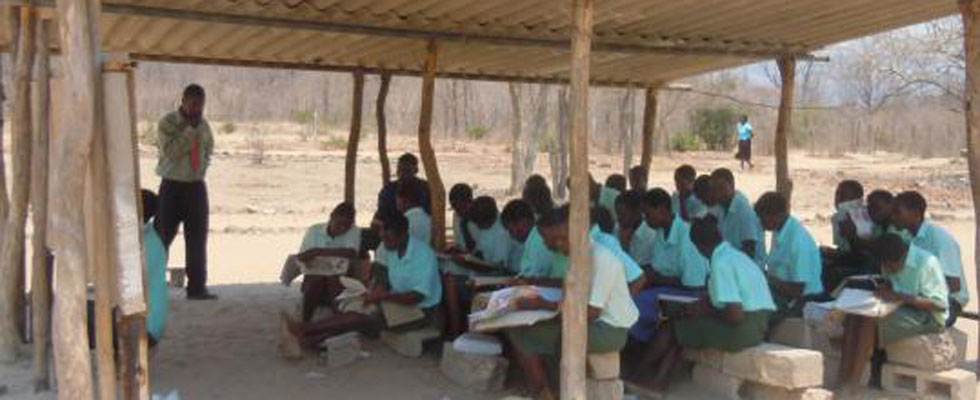
SCHOOL children in the country’s southern region are performing dismally due to poverty, poor infrastructure and inadequate learning facilities, an official has said.
BY OUR CORRESPONDENT
Latest Grade Seven results released early this month revealed that about six schools in Gwanda, Matabeleland South, failed to record a single pass.
Acting national president of Zimbabwe Schools Development Association (ZSDA), Xolisani Dlamini, said pupils in Matabeleland region were producing pathetic results owing to poverty.
“School-children in the southern region are spending most of the time looking for food instead of going to school,” said Dlamini. “That is why some of the schools in Matabeleland South recorded a 0% pass rate.”
He added that most of the children in the region were vulnerable to abuse because of poverty.
“Children in schools are vulnerable, especially those in the southern region of Zimbabwe, due to high unemployment, migration and internal displacements,” said Dlamini.
Matabeleland region is located in ecological region five, which does not receive enough rainfall to allow any meaningful agricultural activities to take place.
- Chamisa under fire over US$120K donation
- Mavhunga puts DeMbare into Chibuku quarterfinals
- Pension funds bet on Cabora Bassa oilfields
- Councils defy govt fire tender directive
Keep Reading
‘Poor school infrastructure contributing to low pass rate’
Xolisani Dlamini said most parents in Matabeleland were going to neighbouring countries to look for greener pastures, leaving their children to fend for themselves.
“A number of our families are now child-headed after the parents went to neighbouring countries to look for employment. This is resulting in them becoming vulnerable to sexual and other forms of abuse because sometimes they don’t have school fees or food,” said the ZSDA official.
“We have come across several instances whereby school girls are impregnated, especially in Matabeleland South. Some men are taking advantage of the vulnerability of these young girls to lure them with money in exchange for sexual favours.”
Dlamini added that poor sanitation, lack of accommodation and poor school infrastructure and facilities were also contributing to the low pass rate.
A recent visit by this paper to some schools in Matabeleland North also revealed that they did not have adequate classrooms and some children were learning under trees.
This was most common in Binga where school children also walk long distances to school.
The quality of education has also been compromised by a shortage of qualified teachers. Most teachers are reluctant to teach at remote rural schools.











